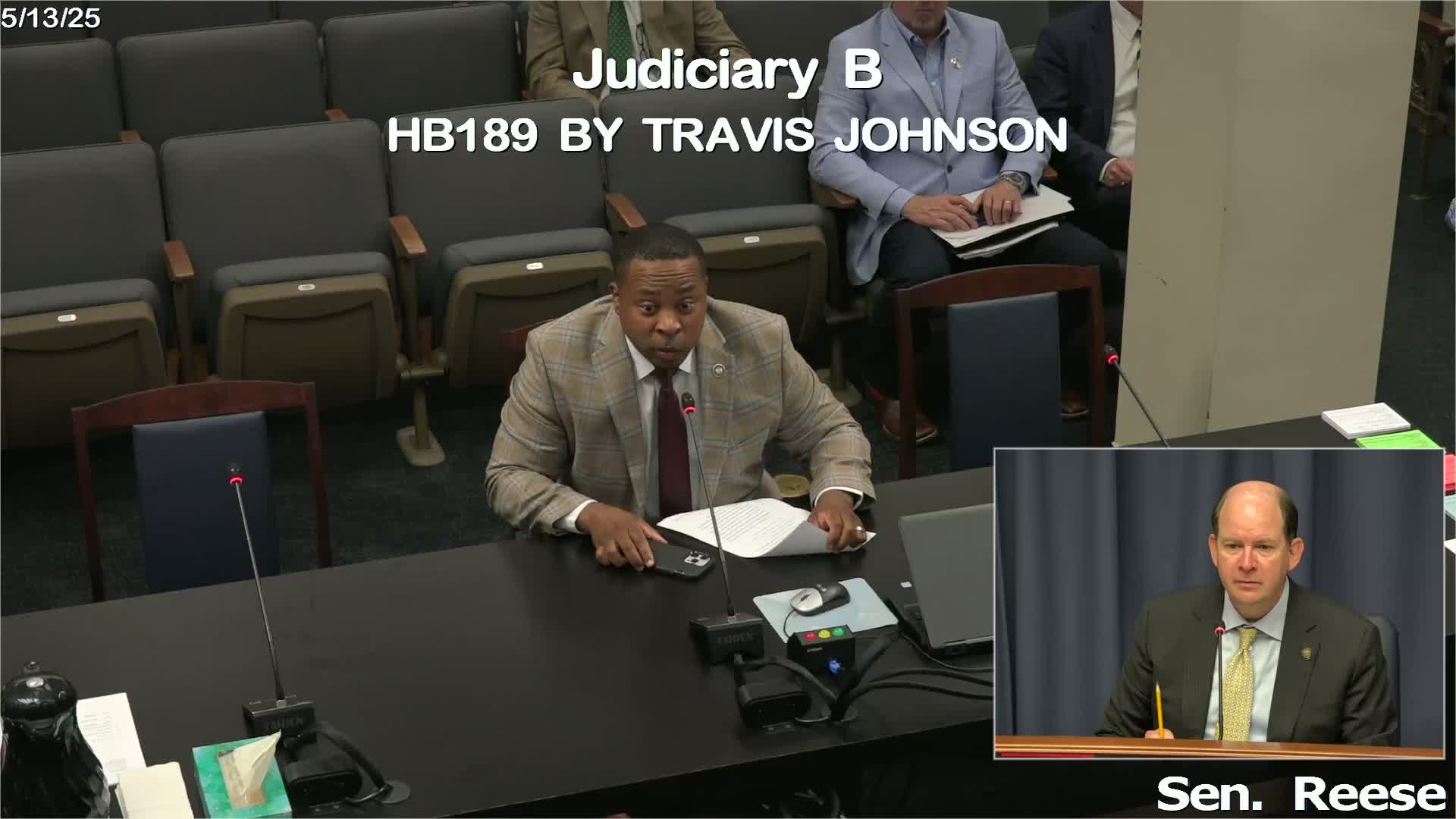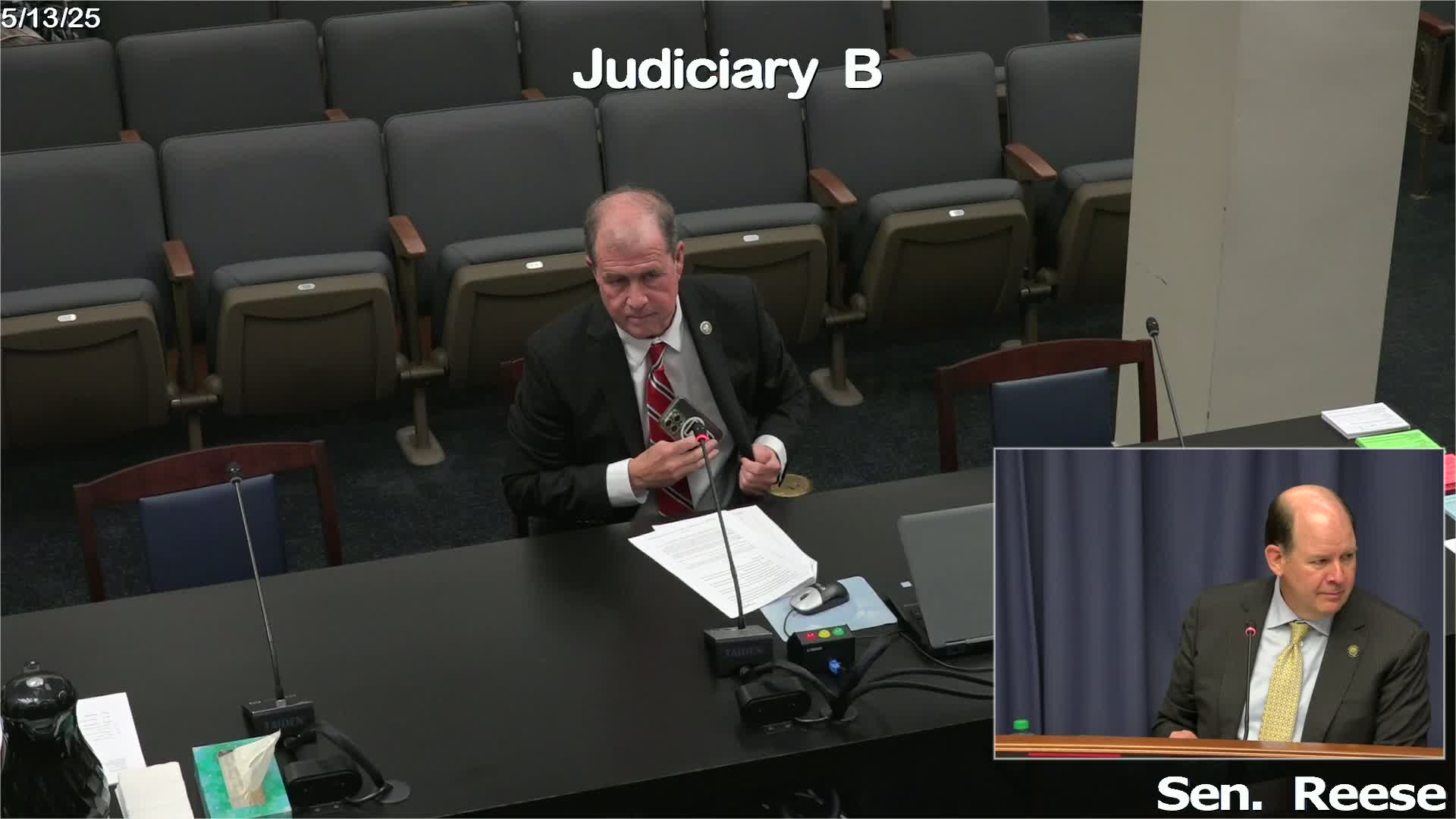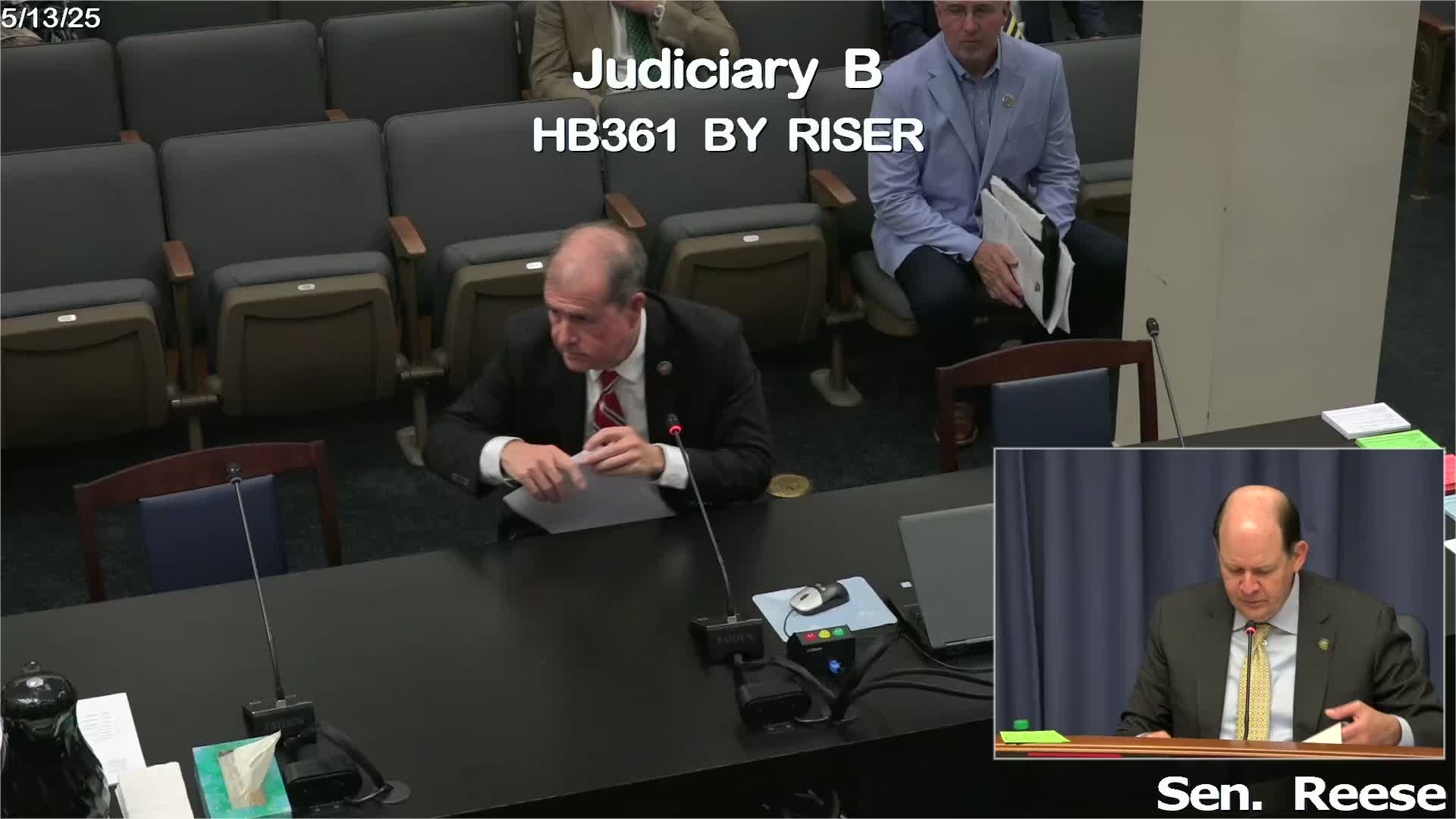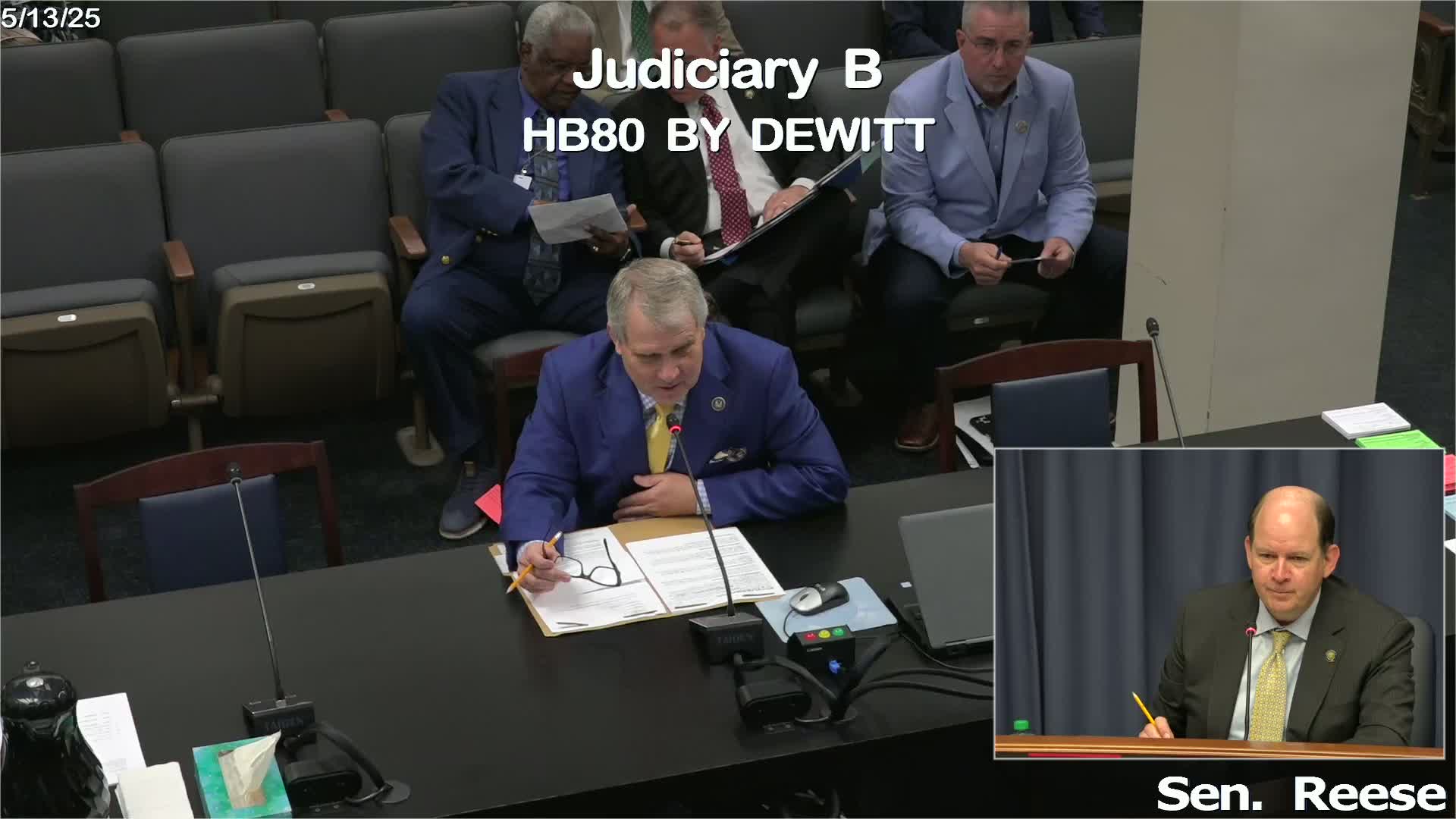Article not found
This article is no longer available. But don't worry—we've gathered other articles that discuss the same topic.

Committee approves bill to require electronic submission of sentencing documents to Department of Corrections

Committee clears several local bills adjusting sheriff eligibility and benefits in three parishes

Committee advances bill to designate electrical linemen as first responders during weather emergencies

